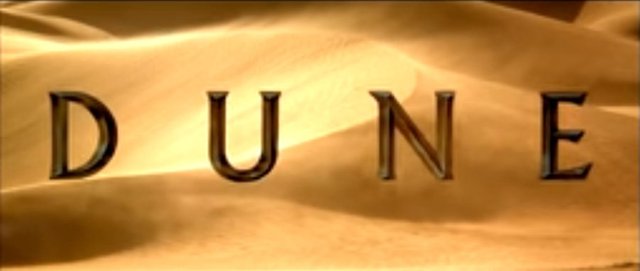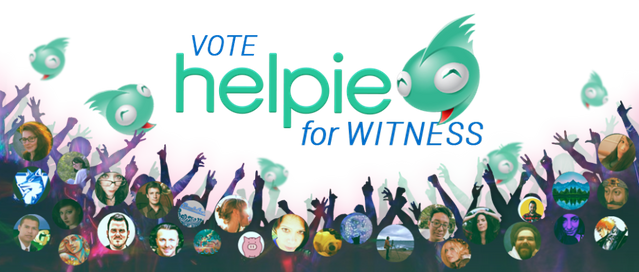Dune And The Pleasure Of Not Knowing
We're approaching the December 2020 release date of Denis Villeneuve's adaptation of Dune by Frank Herbert. Dune is in my opinion the greatest science fiction saga ever put to paper, not just because of the typical sci-fi ingredients like the enormous scope of space and time that's covered, the amazing technology and splendid action, but because of the depth with which it explores the human condition, biological and cultural evolution and the inevitability of the effects of our words and actions.

source: YouTube
WARNING! Spoilers ahead for the Dune science fiction series by Frank Herbert. I don't believe that reading this post will in any way diminish the pleasure of reading the books afterwards, or seeing the film next year; I've read and listened to it several times and every time it's a pleasure because it's so full of philosophical, political and religious themes that there's something new to be discovered every time.
All previous attempts to translate this saga to the medium of moving pictures and sounds have failed, and have done so on a fundamental level. People who read only the first book, or only know Dune through the David Lynch directed 1984 movie, are almost inevitably left with the conviction that Paul Atreides is the story's hero. But he actually isn't. Well... he is and he isn't; I'll try to explain why I think this is the case.
First, there's the words of Frank Herbert, the writer himself. There are many quotes by him that warn us for "charismatic leaders" and the effects they have on their unquestioning followers. Here's but one of them: "The mistakes (of leaders) are amplified by the numbers who follow them without question. Charismatic leaders tend to build up followings, power structures and these power structures tend to be taken over by people who are corruptible. I don't think that the old saw about 'power corrupts and absolute power corrupts absolutely' is accurate: I think power attracts the corruptible." He also said that, in his opinion, charismatic leaders should come with a warning engraved on their foreheads: "I wrote the Dune Saga because I had this idea that charismatic leaders ought to come with a warning label, 'may be dangerous to your health'".
And Paul is exactly that charismatic leader, worse even. Paul Atreides becomes Paul Maud'Dib, the spiritual, religious and political leader of the entire known universe at the end of the first book, not by chance, not by some cosmic fate, but as a result of the deliberate planning of a personality-cult around his own person. Paul is the son of Lady Jessica and Duke Leto Atreides. Jessica is a loyal member of the Bene Gesserit, an all female organization who's highest members, the reverend mothers, possess special powers, one of which is the ability to gain all the knowledge from previous generations, but through the maternal hereditary line only. Eons ago they started a breeding-program with the ultimate goal of creating the "Kwisatz Haderach", a male equivalent of a Bene Gesserit reverend mother who would be able to "see where we dare not look". This Bene Gesserit plan involved them being able to control this Kwisatz Haderach for their own purposes. In this breeding program, Jessica was ordered to give birth to a daughter, but Jessica disobeyed and gave birth to a son, Paul Atreides, and during the whole first book they believe that Paul is the Kwisatz Haderach, and that he came too soon and, more importantly, this robbed them of their chance to ever control him.
Paul is told that many men before him have tried to perform the ritual in order to gain the powers of the reverend mothers, but none survived; Paul did however, strengthening the belief that he really is the chosen one. Now he has all the knowledge of all his ancestors through both paternal and maternal lineages, and he gains the power of prescience; he can see with his inner eye all possible roads into the future, not only for himself, but for humankind. And this is where Paul seizes to be an innocent bystander, and becomes a willing participant in the construction of his own ascent to a God-like figure, which he is in a sense. This is also the moment from which Paul gradually becomes less human, less relatable and downright scary at times. Because he now sees humanity's possible futures, a tremendous responsibility weighs on his shoulders; he will have to choose a path for his "children", one that leads to as little misery as possible or at the very least one that allows humankind to survive. With such far reaching responsibilities, wrought from an almost infinite knowledge of the past and endless extrapolations thereof into an almost infinite future, Paul's attitude towards the ones close to him becomes colder and more distant. His concern for the sanctity of the individual becomes almost non-existent from the perspective of everyone looking at him from the outside, which includes the reader.
The indigenous people of the desert planet Dune are the Fremen (a rather obvious play on "free men"), who live a free but very harsh life in the open desert where almost nothing survives, which in itself is a great contrast to the paradise-like planet of Caladan, where Paul was born. This gives us two themes that are central to the books and to our real lifes: freedom comes with a steep price, and humans are shaped by their natural surroundings. Frank Herbert has said that the idea for Dune originated when he was supposed to do a magazine article on sand dunes in the Oregon Dunes near Florence, Oregon. He became too involved and ended up with far more raw material than needed for an article. The article was never written, but instead planted the seed that led to Dune. Here he was introduced to man's ability to control his natural surroundings in a very real way, and the path that's chosen by Paul for his followers in Dune, is one that involves changing the entire planet into a fertile paradise. And he can see all this happening through his prescience, he knows that it will happen. He knows that he will rob the Fremen from their freedom as well as the habitat in which their freedom was shaped...
DUNE Movie Preview | What to expect from Denis Villeneuve's Dune Remake?
At the end of the first book Paul has started the Jihad he had envisioned to be the path forward for humanity. He knows that billions of innocent people will die and he knows that he will become the new emperor of a universe that's ruled by his word in the most literal sense. The free thinking Fremen will become his fanatic soldiers who will kill anyone that goes against the word of Paul Muad'Dib, killing freedom as they spread around the inhabited universe. But... Paul's prescience isn't perfect. Just like the Bene Gesserit, there are certain places in the landscape of the future where Paul cannot see, and he knows it. He knows that his path is not precise, but rather a general direction where each individual choice can have a butterfly-effect further down the stream of space-time, causing the "Golden Path" to be lost from sight. It's not so strange that this slight uncertainty about the future is the only thing saving Paul's sanity; not knowing allows him to be surprised from time to time, which gives him great pleasure, is a more than welcome diversion from the boredom that's born from knowing each moment in advance. It reminds him of his individuality, sets him apart from the multitude of ancestors that live inside him and allows him to briefly recognize the worth of the individuals who's lifes he holds sway over.
Absolute knowledge of everything is a state of stagnation, the end of progress, the onslaught of eternal boredom. One of the quotes in Dune says that this eternal boredom of the all-knowing mind is reason enough for God to give his children free will. It's only in the second book that Paul is really confronted by this complete boredom. This happens in an event caused by one of the minor blind spots in his prescient vision; it's one of the rare surprises he cherishes so much, that causes him to forever rely on that prescient vision. In the second book, "Children of Dune", he gets caught up in an explosion that burns the soft tissue of his eye-balls; empty sockets remain where his eyes once were. This forces him to constantly rely on his prescience, and this will make him seem even less human than he already did. His most loyal followers get the chills when a man without eyes describes in minute detail what's happening, what colors their clothes are and so on. But for Paul this means that he's lost most of his freedom to choose micro-paths into the future, because he is now completely depending on the path that's presented before him; he becomes a complete slave to his own prescience and becomes a victim of the complete boredom he so dreads.
In this second book things happen that allow Paul to give up his prescience, that allow him to embrace true blindness. Embrace blindness, think about that. It's the ultimate depiction of the pleasure of not knowing. And this is a fundamental truth of our universe, of the universe as it's understood by the human mind; the more we know, the less we know. It's something like this: what we know is like a balloon. Its surface is the interface between what's known and what's not known. The air we blow inside is our expanding knowledge. The more air we blow inside, the greater the surface becomes; more knowledge increases our exposure to the unknown. With every answer, 100 new questions come up. That's the reality we must necessarily embrace, for the alternative is the tragedy embodied in Paul Muad'Dib's life. Absolute knowledge that's offered by charismatic leaders or God even, works like a box with hard borders as opposed to the expanding surface of a rubber balloon. One of my favorite scientists, Richard Feynman, once said this about the pleasure of not knowing:
"I think it's much more interesting to live not knowing than to have answers which might be wrong. I have approximate answers and possible beliefs and different degrees of uncertainty about different things, but I am not absolutely sure of anything and there are many things I don't know anything about, such as whether it means anything to ask why we're here. I don't have to know an answer. I don't feel frightened not knowing things, by being lost in a mysterious universe without any purpose, which is the way it really is as far as I can tell."
source: Goodreads
I'm so excited to see whether Villeneuve's films can do justice to the deep intersections between politics, religion, economics, ecology and evolution of biology, culture, psychology and intelligence interwoven through this epic. I say films, plural, because the first book will be told in two films, which is good news as far as I'm concerned. In the run-up to the release date I'll try to touch on some more of the themes that run through this narrative; this post was just scratching the surface really. The history and motives of the Bene Gesserit, the abolition of all "thinking machines" and their replacement by "mentats", humans that are bred, trained and conditioned to act as human computers, the multiple lifes of Duncan Idaho... There's so much to this story, and it all amounts to one of the best descriptions of the human condition that I know of. Paul Atreides is exactly the charismatic leader, the giver of absolute truths that Frank Herbert warns us about, and that we have seen throughout our history and are seeing in our present. Think for yourself in the knowledge that "yourself" is, to a great extent, a product of all the other "selfs" as well as the physical conditions surrounding you. If I was such a charismatic absolute ruler, I'd make Dune mandatory reading for everyone, before the power-structure built around my absolute truths crumbles down to a heap of rubble through which future generations must dig for themselves to find the occasional "true" truth buried in there...
ERRATUM: Must stop writing these on such late hours... The second book is of course "Dune: Messiah" and the third book was "Children of Dune".
5 Misconceptions About The Dune Saga
Thanks so much for visiting my blog and reading my posts dear reader, I appreciate that a lot :-) If you like my content, please consider leaving a comment, upvote or resteem. I'll be back here tomorrow and sincerely hope you'll join me. Until then, keep steeming!

Recent articles you might be interested in:

Thanks for stopping by and reading. If you really liked this content, if you disagree (or if you do agree), please leave a comment. Of course, upvotes, follows, resteems are all greatly appreciated, but nothing brings me and you more growth than sharing our ideas. It's what Steemit is made for!


Just for Full Disclosure, I'm invested in these crypto-currencies:
Bitcoin | Litecoin | EOS | OmiseGo | FunFair | KIN | Pillar | DENT | Polymath | XDCE | 0x | Decred | Ethereum | Carmel | XYO

@helpie is a WITNESS now! So please help @helpie help you by voting for us here!

Hi @zyx066!
Your post was upvoted by @steem-ua, new Steem dApp, using UserAuthority for algorithmic post curation!
Your UA account score is currently 3.896 which ranks you at #4553 across all Steem accounts.
Your rank has not changed in the last three days.
In our last Algorithmic Curation Round, consisting of 92 contributions, your post is ranked at #22.
Evaluation of your UA score:
Feel free to join our @steem-ua Discord server